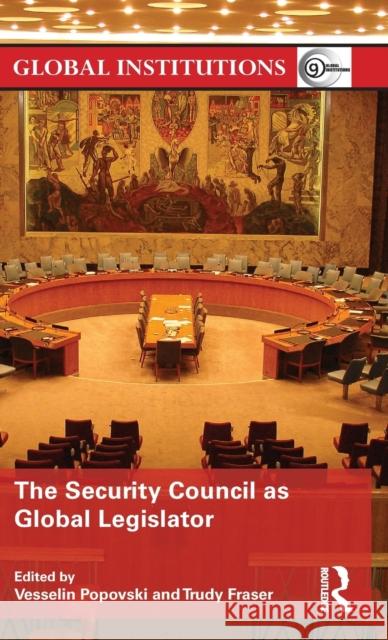The Security Council as Global Legislator » książka
The Security Council as Global Legislator
ISBN-13: 9780415743372 / Angielski / Twarda / 2014 / 328 str.
The Security Council as Global Legislator
ISBN-13: 9780415743372 / Angielski / Twarda / 2014 / 328 str.
(netto: 791,35 VAT: 5%)
Najniższa cena z 30 dni: 730,42
ok. 16-18 dni roboczych.
Darmowa dostawa!
Security Council resolutions have undergone an important evolution over the last two decades. While continuing its traditional role of determining state-specific threats to the peace and engaging accordingly in various peaceful or coercive measures, the Security Council has also adopted resolutions that have effectively imposed legal obligations on all UN Member States. This book seeks to move away from the discussions of whether the Security Council -in its current composition and working methods-is representative, capable, or productive - as such issues are already extensively debated in other forums. Rather the book seeks to assess whether the specific legislative activity by the Security Council as such, in principle, can be beneficial to international peace and security. If instead of waiting for 'threats to the peace' to emerge from country-specific situations (where permanent members can also be biased and use veto) the Security Council is addressing generic international threats-such as terrorism, weapons proliferation, targeting of civilians, recruitment of child soldiers, piracy etc.-can this be instrumental in adding a preventive and standard-setting framework to the Security Council's more traditional roles for the maintenance of international peace and security?Contributors to the book constitute a diverse group of Security Council scholars and analysts, and international lawyers and it will be of great interest to students and scholars of international relations, international organizations and international security studies alike.











